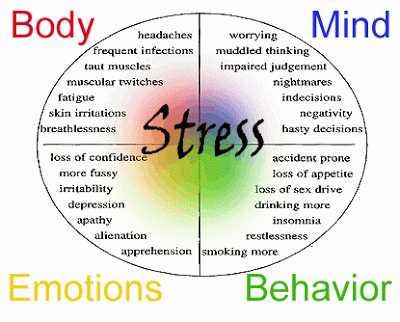
Stress is an inevitable part of life, but it doesn’t have to consume us. With the right strategies and coping mechanisms, we can effectively manage stress and improve our overall well-being. A stress management plan is a powerful tool that can help us navigate through life’s challenges and maintain a sense of balance.
One example of an effective stress management plan is to incorporate relaxation techniques into our daily routine. Taking time for ourselves and engaging in activities that promote relaxation, such as deep breathing exercises or meditation, can help us unwind and reduce stress levels. By making relaxation a priority, we can create a buffer against the negative effects of stress.
Another important aspect of a stress management plan is to identify and address the sources of stress in our lives. This could involve making changes in our environment, setting boundaries with others, or seeking support from loved ones or professionals. By actively addressing the root causes of stress, we can prevent them from escalating and negatively impacting our well-being.
Ultimately, a stress management plan should be personalized to meet our individual needs and preferences. It should include a combination of strategies that work best for us, whether it’s engaging in physical activity, practicing mindfulness, or seeking professional help. By taking proactive steps to manage stress, we can enhance our overall well-being and lead a more balanced and fulfilling life.
Understanding Stress and Its Effects
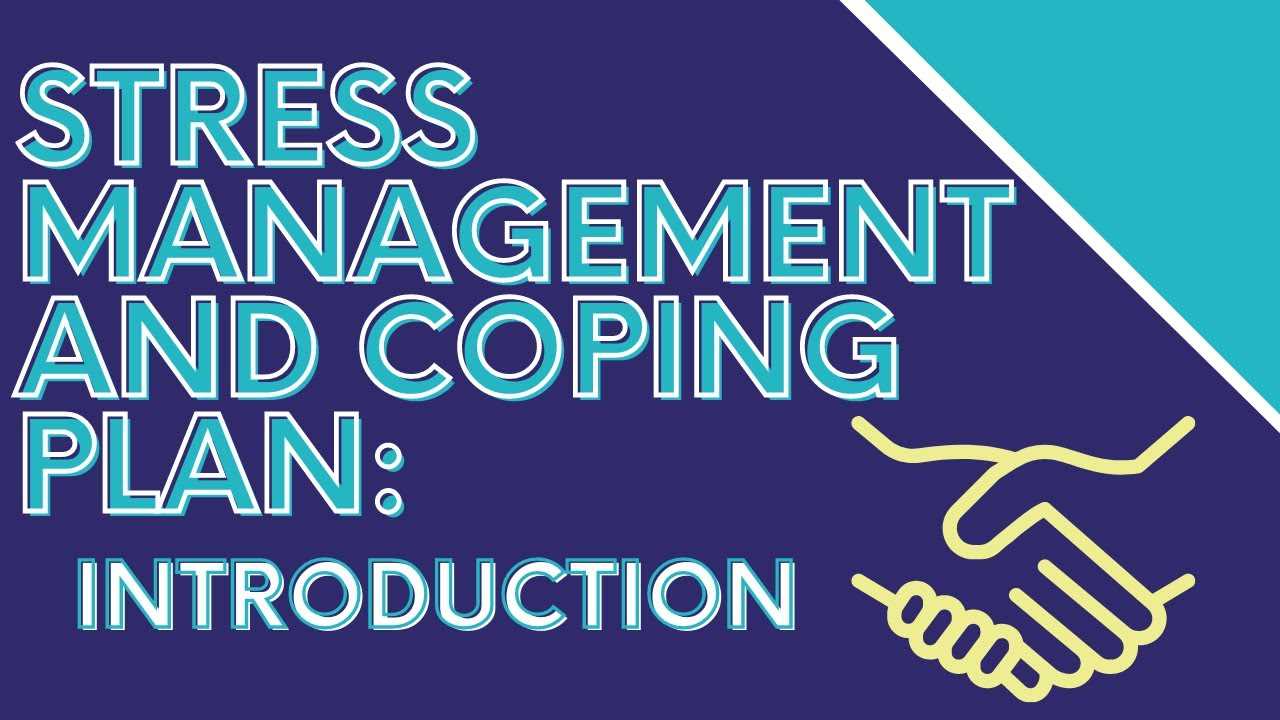
Stress is a natural response that our bodies experience when we encounter challenging or threatening situations. It is a normal part of life and can be both positive and negative. While some stress can motivate us to perform better and achieve our goals, excessive or prolonged stress can have detrimental effects on our well-being.
When we are under stress, our bodies release hormones such as adrenaline and cortisol, which trigger the “fight or flight” response. This response prepares us to either confront the stressor or run away from it. While this response can be helpful in certain situations, chronic stress can lead to physical, emotional, and psychological problems.
Understanding the effects of stress on our bodies and minds is crucial in developing effective stress management strategies. Chronic stress can negatively impact our immune system, making us more susceptible to illnesses. It can also lead to cardiovascular problems, digestive issues, and sleep disturbances. Additionally, stress can affect our mental health, contributing to anxiety, depression, and difficulty concentrating.
Creating a stress management plan is essential for coping with stress and maintaining overall well-being. This plan may include various techniques and activities to help reduce stress levels and promote relaxation. For example, practicing mindfulness and meditation can help calm the mind and reduce anxiety. Engaging in regular physical exercise, such as yoga or jogging, can release endorphins and improve mood.
It is also important to identify and address the sources of stress in our lives. This may involve setting boundaries, managing time effectively, and seeking support from friends, family, or professionals. Developing healthy coping strategies, such as journaling, deep breathing exercises, or engaging in hobbies, can also be beneficial in managing stress.
By understanding the effects of stress and implementing effective stress management techniques, we can improve our overall well-being and lead a healthier, happier life.
Identifying the Sources of Stress
Before creating an effective stress management plan, it is important to first identify the sources of stress in your life. Understanding what causes stress can help you develop appropriate strategies and techniques to manage and cope with it. Here are some key steps to help you identify the sources of stress:
1. Self-reflection: Take some time to reflect on your daily life and activities. Consider what situations, people, or responsibilities tend to cause you the most stress. This could be related to work, relationships, finances, or personal expectations.
2. Keep a stress journal: Start keeping a journal to track and analyze your stress levels throughout the day. Write down the events or situations that trigger stress, as well as any physical or emotional symptoms you experience. This can help you identify patterns and common stressors.
3. Pay attention to your body: Stress often manifests physically, so pay attention to any changes or symptoms you experience when you are feeling stressed. This could include headaches, muscle tension, stomachaches, or difficulty sleeping.
4. Assess your coping mechanisms: Consider how you currently cope with stress. Are your coping mechanisms healthy and effective, or do they contribute to more stress? For example, relying on unhealthy habits like excessive drinking or overeating can add to your stress levels.
5. Seek input from others: Sometimes it can be difficult to identify our own sources of stress. Reach out to trusted friends, family members, or a therapist to get an outside perspective. They may be able to provide insights or observations that you haven’t considered.
Example: Let’s say you notice that you often feel stressed and overwhelmed after work. Through self-reflection and journaling, you realize that it’s the long commute and heavy workload that are the main sources of stress. Armed with this knowledge, you can then develop a stress management plan that includes strategies such as finding ways to relax during your commute, setting boundaries with work tasks, and practicing relaxation techniques after work.
By identifying the sources of stress in your life, you can create a stress management plan that specifically targets those areas. This will allow you to develop effective strategies and techniques to cope with stress and promote relaxation.
Recognizing the Physical and Emotional Symptoms of Stress
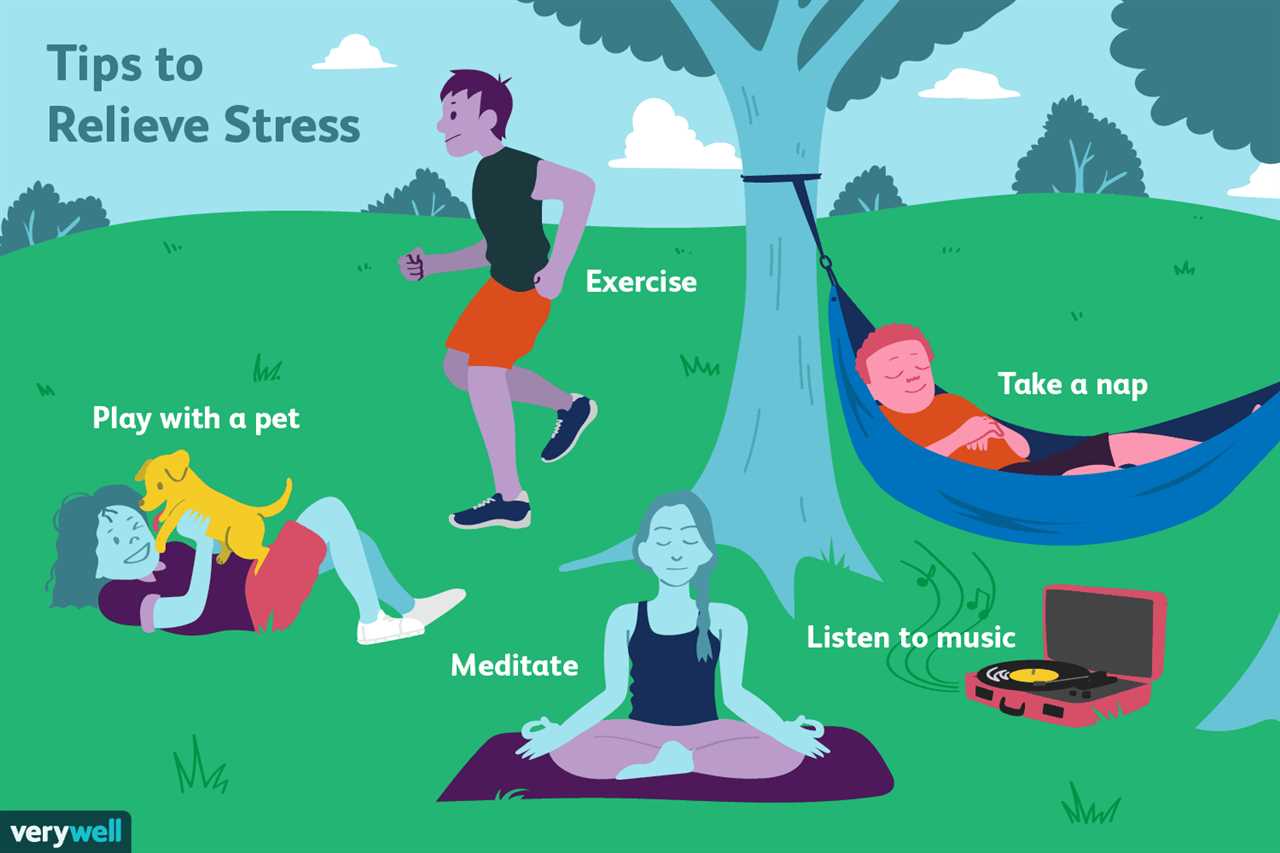
When it comes to stress management, one of the first steps is recognizing the physical and emotional symptoms of stress. Being able to identify these symptoms is crucial for developing effective coping strategies and creating a stress management plan that promotes relaxation and overall well-being.
Physical Symptoms: Stress can manifest itself in a variety of physical ways. Some common physical symptoms of stress include headaches, muscle tension, fatigue, difficulty sleeping, changes in appetite, and gastrointestinal problems. Paying attention to these physical cues can help you recognize when stress is impacting your body.
Emotional Symptoms: Stress can also have a significant impact on your emotional well-being. Some common emotional symptoms of stress include irritability, anxiety, depression, mood swings, difficulty concentrating, and feelings of overwhelm. It’s important to be aware of these emotional symptoms and how they may be affecting your mental health.
By recognizing both the physical and emotional symptoms of stress, you can begin to develop a stress management plan that addresses these specific areas. For example, if you notice that you frequently experience headaches and muscle tension when you’re stressed, incorporating relaxation techniques such as deep breathing exercises or yoga into your daily routine may help alleviate these symptoms.
Remember, stress management is an ongoing process, and what works for one person may not work for another. It’s important to experiment with different strategies and techniques to find what works best for you and promotes your overall well-being.
Developing a Personalized Stress Management Plan
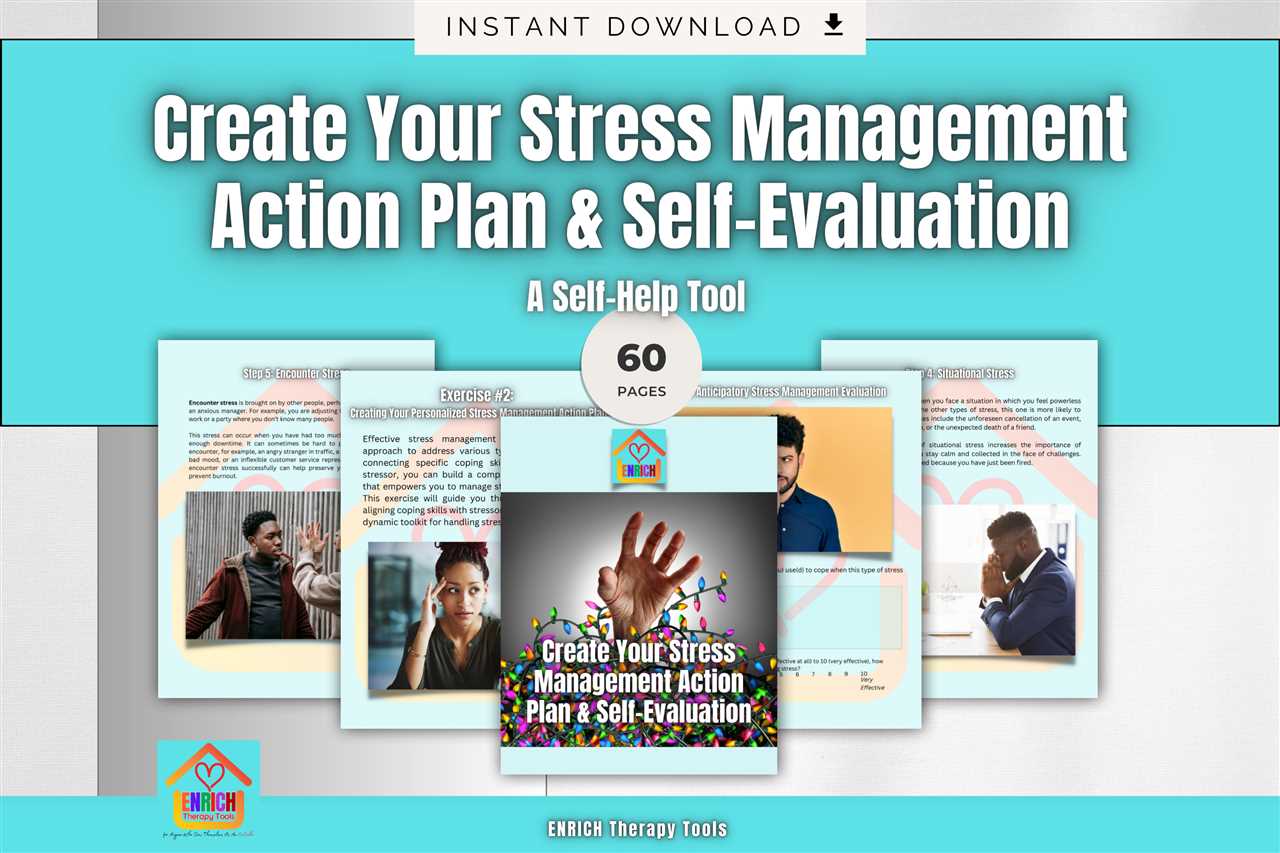
Creating a personalized stress management plan is essential for maintaining overall well-being. By developing a plan tailored to your specific needs and circumstances, you can effectively manage and cope with stress in your life.
Start by identifying the main sources of stress in your life. This could include work-related stress, relationship issues, financial concerns, or health problems. Once you have identified these stressors, you can begin to implement techniques and strategies to manage them effectively.
One important aspect of stress management is relaxation techniques. These can include deep breathing exercises, meditation, or mindfulness practices. Incorporating relaxation techniques into your daily routine can help reduce stress levels and promote a sense of calm and well-being.
Another key component of a stress management plan is developing coping strategies. These strategies can include problem-solving skills, time management techniques, or seeking support from friends, family, or professionals. By actively addressing and managing stressors, you can build resilience and improve your ability to handle stressful situations.
It is also important to prioritize self-care and make time for activities that bring you joy and relaxation. This could include engaging in hobbies, practicing self-care rituals, or spending time in nature. Taking care of yourself physically, mentally, and emotionally is crucial for managing stress and maintaining overall well-being.
In conclusion, developing a personalized stress management plan is essential for effectively managing stress and promoting well-being. By incorporating relaxation techniques, developing coping strategies, and prioritizing self-care, you can build resilience and maintain a healthy balance in your life.
Setting Realistic Goals
One important aspect of a stress management plan is setting realistic goals. When it comes to managing stress and improving well-being, it’s essential to have clear objectives that are achievable and realistic. Setting unrealistic goals can lead to frustration and even more stress.
Here are some strategies and techniques to help you set realistic goals:
1. Prioritize: Start by identifying the most important areas of your life that you want to focus on. This could include your career, relationships, health, or personal development. By prioritizing, you can narrow down your goals and focus on what truly matters to you.
2. Break it down: Once you have identified your priorities, break down your goals into smaller, more manageable tasks. This will make them less overwhelming and increase your chances of success. For example, if your goal is to exercise regularly, start by committing to a 15-minute walk every day and gradually increase the duration and intensity.
3. Be specific: Instead of setting vague goals like “be healthier” or “reduce stress,” be specific about what you want to achieve. For example, set a goal to exercise for at least 30 minutes five days a week or practice mindfulness meditation for 10 minutes every day. Specific goals provide clarity and make it easier to track your progress.
4. Set realistic deadlines: Give yourself enough time to achieve your goals. Setting unrealistic deadlines can lead to unnecessary stress and disappointment. Consider your current commitments and schedule and set deadlines that are challenging but attainable.
5. Celebrate milestones: As you make progress towards your goals, celebrate your achievements along the way. Recognize and reward yourself for your hard work and dedication. This will help motivate you to continue working towards your goals and maintain a positive mindset.
By setting realistic goals, you can create a stress management plan that is effective and sustainable. Remember, the goal is to improve your well-being and develop healthy coping strategies to manage stress. Use these tips and techniques as a guide, and adapt them to your own unique situation.
Prioritizing Tasks and Time Management
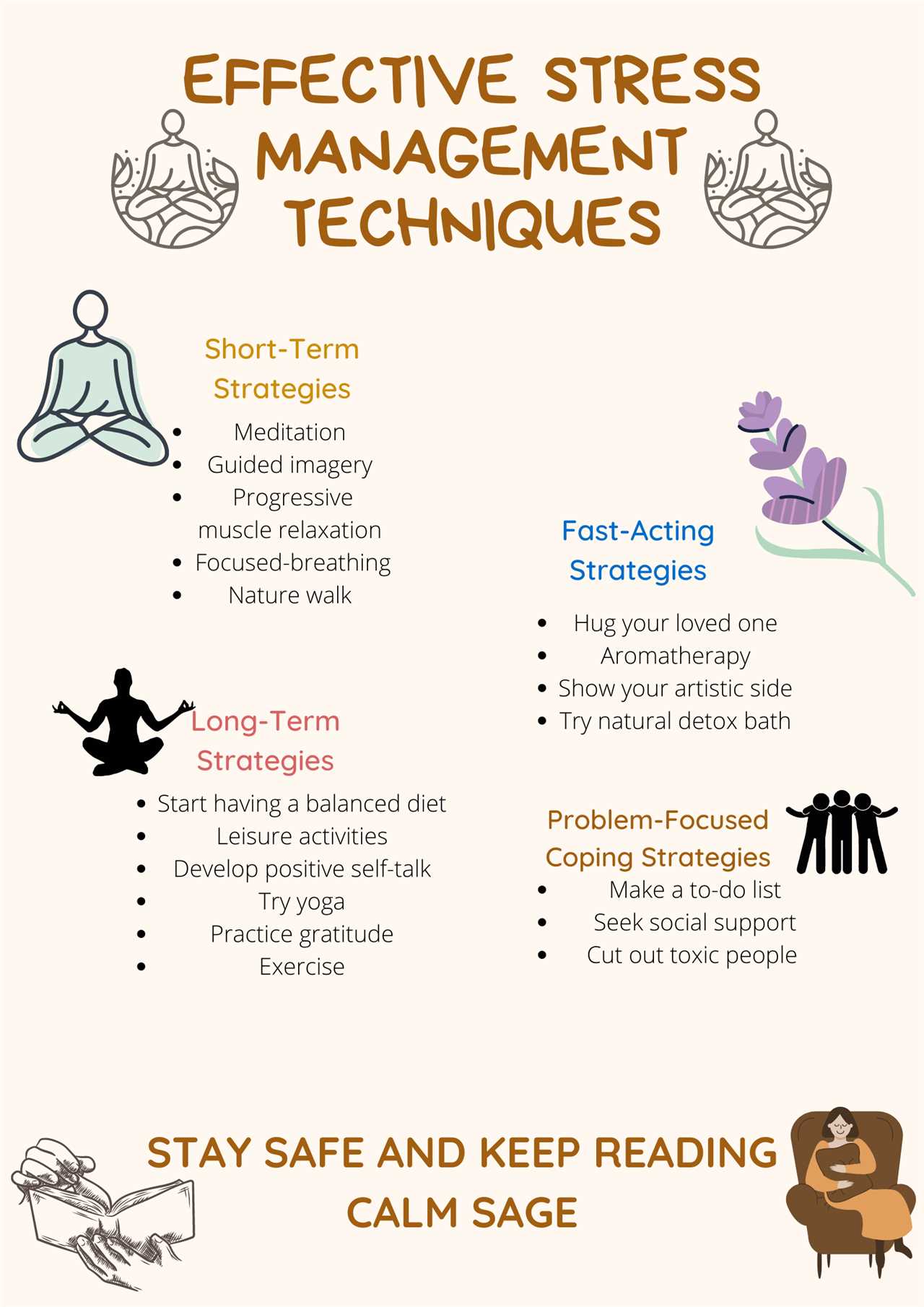
When it comes to stress management, prioritizing tasks and effective time management are crucial for maintaining your overall well-being. By organizing your tasks and managing your time efficiently, you can reduce stress levels and increase productivity. Here are some techniques and strategies to help you prioritize tasks and manage your time effectively:
- Make a to-do list: Start by creating a list of all the tasks you need to complete. Prioritize the tasks based on their importance and deadline. This will help you stay organized and focused on what needs to be done.
- Break tasks into smaller steps: If you have a large project or task, break it down into smaller, manageable steps. This will make it easier to tackle and prevent feelings of overwhelm.
- Set realistic deadlines: Be realistic about how much time you need to complete each task. Avoid overcommitting yourself and give yourself enough time to complete each task without rushing.
- Use time management techniques: Explore different time management techniques, such as the Pomodoro Technique or time blocking. These techniques can help you stay focused and productive by breaking your work into intervals or allocating specific time slots for different tasks.
- Eliminate distractions: Minimize distractions that can derail your focus and productivity. Turn off notifications on your phone, close unnecessary tabs on your computer, and create a quiet and organized workspace.
- Delegate tasks: If possible, delegate tasks to others to lighten your workload. This can free up time for you to focus on more important tasks or provide you with much-needed relaxation time.
- Practice relaxation techniques: Incorporate relaxation techniques, such as deep breathing exercises or mindfulness meditation, into your daily routine. These techniques can help reduce stress and improve your ability to focus and prioritize tasks.
- Review and adjust: Regularly review your task list and assess your progress. Adjust your priorities and deadlines as needed to ensure you stay on track and manage your time effectively.
By implementing these time management and task prioritization techniques into your stress management plan, you can create a more balanced and productive lifestyle. Remember, finding what works best for you may require some trial and error, so be patient and persistent in finding the strategies that suit your needs.
Adopting Healthy Coping Mechanisms
When it comes to managing stress, adopting healthy coping mechanisms is essential. These techniques and strategies can help individuals effectively deal with stress and promote relaxation, ultimately improving overall well-being.
One of the key aspects of stress management is developing healthy coping mechanisms. These mechanisms can vary from person to person, as different strategies work for different individuals. Some common coping mechanisms include:
1. Exercise: Engaging in regular physical activity can help reduce stress levels by releasing endorphins, which are known as “feel-good” hormones. Whether it’s going for a run, practicing yoga, or simply taking a walk, incorporating exercise into your stress management plan can have a significant impact on your overall well-being.
2. Deep breathing and mindfulness: Deep breathing exercises and mindfulness techniques can help calm the mind and promote relaxation. Taking deep breaths and focusing on the present moment can alleviate stress and provide a sense of clarity.
3. Seeking support: It’s important to remember that you don’t have to face stress alone. Seeking support from friends, family, or a support group can provide a sense of comfort and understanding. Talking about your stressors and concerns can help alleviate stress and provide new perspectives.
4. Time management: Poor time management can often lead to increased stress levels. By prioritizing tasks, setting realistic goals, and creating a structured schedule, you can better manage your time and reduce stress levels.
5. Engaging in hobbies: Taking time to engage in activities you enjoy can serve as a healthy distraction from stress. Whether it’s reading, painting, or playing a musical instrument, hobbies can provide a sense of relaxation and promote overall well-being.
By incorporating these healthy coping mechanisms into your stress management plan, you can effectively reduce stress levels and improve your overall well-being. Remember, finding the right coping mechanisms may take time and experimentation, so be patient and open to trying new strategies.
Implementing Stress Management Techniques
Once you have created a stress management plan, it’s important to implement various techniques to promote your well-being and reduce stress. Here are some strategies you can incorporate into your daily routine:
1. Practice relaxation techniques: Engage in activities that promote relaxation, such as deep breathing exercises, mindfulness meditation, or progressive muscle relaxation. These techniques can help calm your mind and body, reducing stress levels.
2. Prioritize self-care: Make time for activities that bring you joy and help you recharge. This can include hobbies, spending time with loved ones, or engaging in physical exercise. Taking care of yourself is essential for managing stress effectively.
3. Develop healthy coping mechanisms: Identify healthy ways to cope with stress, such as talking to a trusted friend or family member, journaling, or seeking professional help. Avoid unhealthy coping mechanisms like excessive alcohol consumption or overeating, as these can worsen stress levels in the long run.
4. Set boundaries: Learn to say no to tasks or commitments that overwhelm you. Establishing boundaries can help prevent stress from piling up and give you the space to focus on self-care and relaxation.
5. Practice time management: Break tasks into smaller, manageable chunks and prioritize them based on importance. This approach can help you feel more organized and in control, reducing stress associated with feeling overwhelmed or rushed.
6. Engage in stress-reducing activities: Find activities that help you unwind and reduce stress, such as listening to music, taking a warm bath, or going for a nature walk. Experiment with different activities to discover what works best for you.
By implementing these stress management techniques into your daily routine, you can effectively manage stress and promote your overall well-being.
Practicing Relaxation Techniques

In order to effectively manage stress and promote overall well-being, it is important to incorporate relaxation techniques into your stress management plan. These techniques can help reduce stress levels and improve coping strategies. Here are a few examples of relaxation techniques that you can try:
| Technique | Description |
| Deep Breathing | This technique involves taking slow, deep breaths and focusing on your breath as you inhale and exhale. It can help calm the mind and relax the body. |
| Meditation | Meditation involves focusing your attention and eliminating the stream of thoughts that may be causing stress. It can promote a sense of calm and relaxation. |
| Progressive Muscle Relaxation | This technique involves tensing and then relaxing different muscle groups in the body. It helps release tension and promotes relaxation. |
| Guided Imagery | Guided imagery involves using your imagination to create a peaceful and calming mental image. It can help reduce stress and promote relaxation. |
| Yoga | Yoga combines physical postures, breathing exercises, and meditation to promote relaxation and reduce stress. It can also improve flexibility and strength. |
By incorporating these relaxation techniques into your stress management plan, you can effectively reduce stress levels and improve your overall well-being. Experiment with different techniques to find what works best for you and make it a regular part of your routine.
Engaging in Regular Physical Exercise
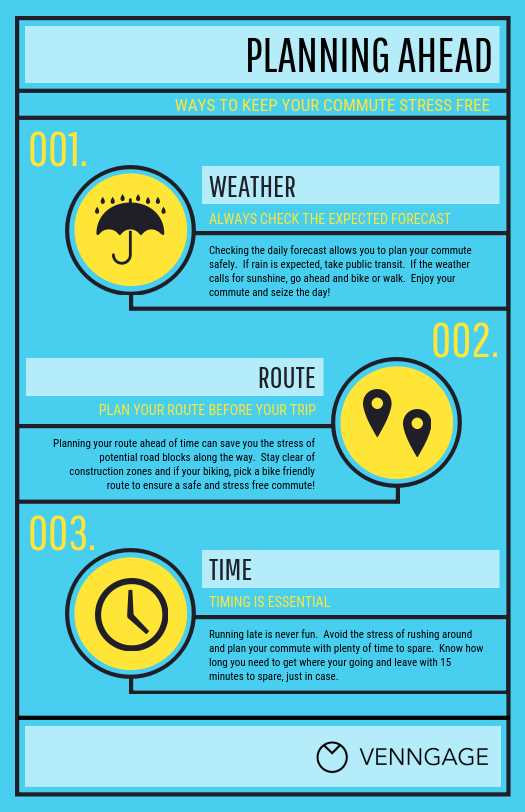
Physical exercise is an essential component of any stress management plan. Regular exercise not only helps to improve physical health but also has numerous mental health benefits. Engaging in physical activities releases endorphins, which are natural mood boosters that can help reduce stress and anxiety.
When creating a stress management plan, it is important to include strategies for incorporating regular physical exercise into your routine. Here are some examples:
- Set aside dedicated time for exercise each day, even if it’s just 30 minutes.
- Choose activities that you enjoy, such as walking, jogging, cycling, swimming, or dancing.
- Join a fitness class or sports team to stay motivated and accountable.
- Include a variety of exercises to keep things interesting and prevent boredom.
- Consider incorporating relaxation techniques, such as yoga or tai chi, into your exercise routine.
Regular physical exercise can not only help with stress management but also improve overall well-being. It is important to find coping techniques that work for you and incorporate them into your daily life to effectively manage stress.

I am Patrina de Silva, a psychologist and mental health blogger in Sri Lanka. After obtaining psychology degrees from the University of Colombo and Monash University, I returned home to work as a counselor while also starting the popular blog “Pressy but Happy” to provide advice on psychological issues. Over the past decade, my empathetic articles have made my blog a leading mental health resource in the country. In addition to writing, I maintain a private therapy practice, frequently volunteer counseling time, and conduct seminars, driven by my passion for destigmatizing mental illness and educating the public on the mind-body connection. I strive to be an influential voice in my field through my compassionate approach.
